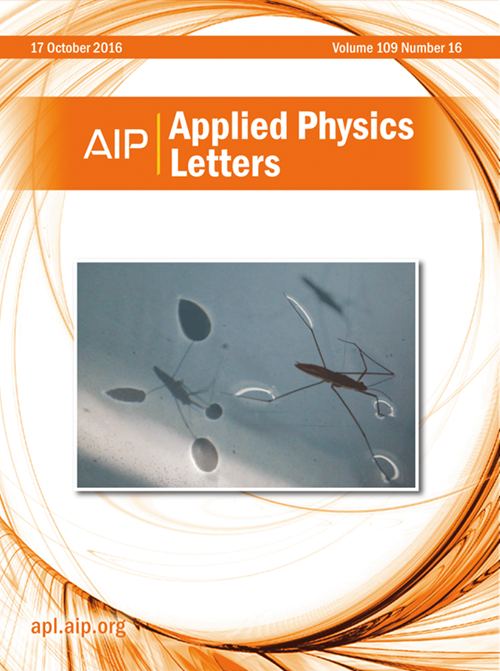Improving lattice-light-shift uncertainty of an 171Yb optical clock with optimized cooling and trapping lasers
IF 3.5
2区 物理与天体物理
Q2 PHYSICS, APPLIED
引用次数: 0
Abstract
Atoms confined in the optical lattice can be interrogated with Doppler- and recoil-free operation. However, if not properly controlled, the optical lattice may limit clock accuracy. To improve the lattice-light-shift uncertainty, the cooling and trapping lasers' frequency stability is optimized, and the atom's signal stability is enhanced. A ring-cavity Ti:sapphire laser is locked to the optical frequency comb, which is referenced to a 578 nm ultra-stable laser, and the beat note's stability is on the order of 10−16. Using a 10 cm Fabry–Pérot cavity referenced to the Ti:sapphire laser, the optical frequency stability is transferred to the 399 nm cooling laser, creating favorable conditions for evaluating the lattice-light-shift accurately. We reevaluate lattice-light-shift in our 171Yb optical lattice clock with an uncertainty of 8.1 × 10−18, which is an order lower than our previous result, and the magic frequency is determined to be 394 798 266.6(1.3) MHz.利用优化的冷却和捕获激光器提高 171Yb 光学时钟的晶格光移不确定性
可以通过多普勒和无反冲操作对封闭在光学晶格中的原子进行探测。但是,如果控制不当,光晶格可能会限制时钟的准确性。为了提高晶格光移的不确定性,需要优化冷却和捕获激光器的频率稳定性,并增强原子信号的稳定性。环腔钛蓝宝石激光器被锁定到光频梳上,光频梳以 578 nm 超稳定激光器为基准,节拍音符的稳定性在 10-16 量级。利用以钛蓝宝石激光器为基准的 10 厘米法布里-佩罗腔,将光频稳定性转移到 399 纳米冷却激光器上,为准确评估晶格光移创造了有利条件。我们重新评估了 171Yb 光晶格时钟中的晶格光漂移,不确定度为 8.1 × 10-18,比之前的结果低了一个数量级,魔幻频率被确定为 394 798 266.6(1.3) MHz。
本文章由计算机程序翻译,如有差异,请以英文原文为准。
求助全文
约1分钟内获得全文
求助全文
来源期刊

Applied Physics Letters
物理-物理:应用
CiteScore
6.40
自引率
10.00%
发文量
1821
审稿时长
1.6 months
期刊介绍:
Applied Physics Letters (APL) features concise, up-to-date reports on significant new findings in applied physics. Emphasizing rapid dissemination of key data and new physical insights, APL offers prompt publication of new experimental and theoretical papers reporting applications of physics phenomena to all branches of science, engineering, and modern technology.
In addition to regular articles, the journal also publishes invited Fast Track, Perspectives, and in-depth Editorials which report on cutting-edge areas in applied physics.
APL Perspectives are forward-looking invited letters which highlight recent developments or discoveries. Emphasis is placed on very recent developments, potentially disruptive technologies, open questions and possible solutions. They also include a mini-roadmap detailing where the community should direct efforts in order for the phenomena to be viable for application and the challenges associated with meeting that performance threshold. Perspectives are characterized by personal viewpoints and opinions of recognized experts in the field.
Fast Track articles are invited original research articles that report results that are particularly novel and important or provide a significant advancement in an emerging field. Because of the urgency and scientific importance of the work, the peer review process is accelerated. If, during the review process, it becomes apparent that the paper does not meet the Fast Track criterion, it is returned to a normal track.
 求助内容:
求助内容: 应助结果提醒方式:
应助结果提醒方式:


